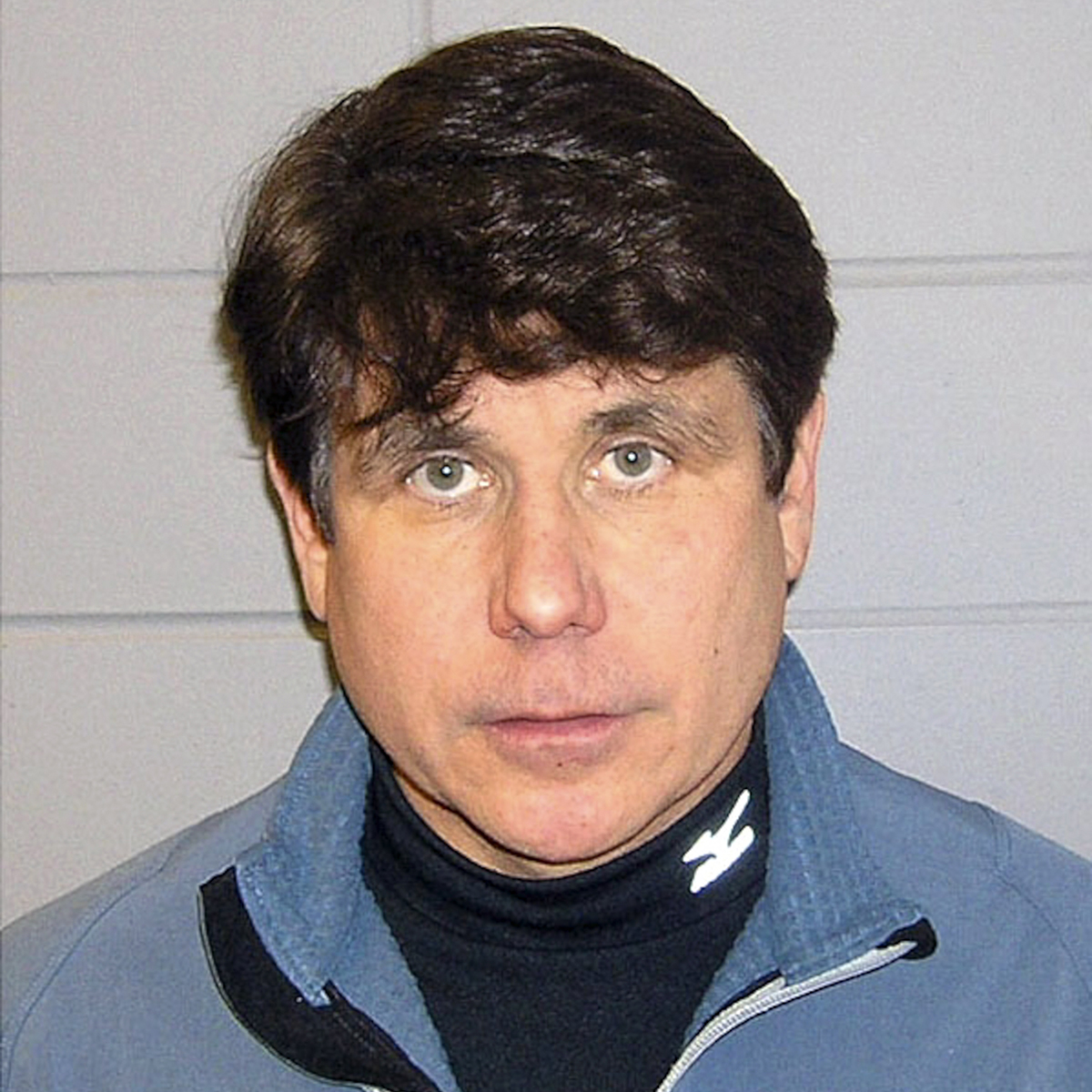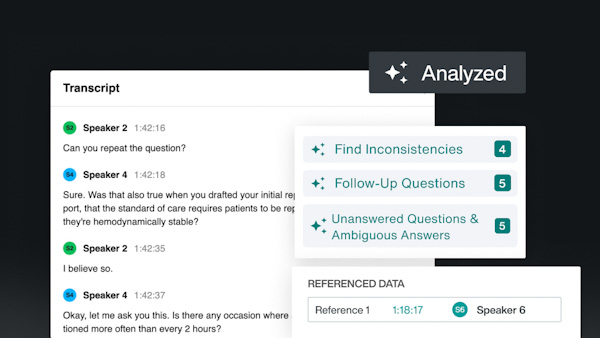To perp walk or not: When do white-collar defendants get to surrender peacefully?

Chicago alderman Ed Burke. Photo by Kate Gardner via Flickr.com.
When the federal government charges anyone with a crime, it’s rare that person will get to surrender peacefully at an arranged date and time without being subjected to a fright-inducing home raid by dozens of armed law enforcement officers and an embarrassing “perp walk” into the station or court.
For the people who are afforded the privilege of self-surrender, popular perception is that they must be white-collar defendants who are rich and powerful.
In fact, it’s a trope so common that it’s become rife for parody. A skit from a 2004 episode of Chappelle’s Show, saw law enforcement agents bust down the door of a wealthy white businessman and shoot his dog, before dragging him out in handcuffs on white-collar charges. Meanwhile, a police officer politely calls up a black drug dealer and asks him to turn himself in at his earliest convenience- even going so far as to ignore all of the incriminating statements made by the suspect while putting out an expensive wine-and-cheese spread for him after he turns himself in—after the deadline.
“The Chappelle skit is so funny because, like all good satire, it rings true,” says David Patton, who leads the Federal Defenders of New York. “The system is not the same for rich and poor.”
That being said, even the rich and powerful don’t always get the benefit of a comfortable surrender. In fact, the decision on whether an individual gets to surrender peacefully depends on a host of factors, including money and influence. Considerations include the nature of the charges and whether it’s likely that the person would destroy evidence or present a safety risk, say experts interviewed by the ABA Journal. Who the individual’s lawyer is also plays a significant role in negotiating a summons, the experts say, and he or she should have negotiation skills, a good track record and perhaps a good relationship with the U.S. attorney’s office.
Reputation is key
Chicago Alderman Ed Burke, charged with federal corruption, wasn’t forced into a squad car in cuffs or paraded in a “perp walk” for the cameras. Instead, the 75-year-old lawyer, wearing a pinstriped suit and fedora paired with a tan overcoat and pink tie, was allowed to surrender without fanfare with his lawyers at the federal courthouse downtown.
Burke was charged with extortion and bribery, based on allegations that he held up construction permits if companies did not send their tax appeal work to his former law firm, Klafter & Burke. He has pleaded not guilty to the charges, and his trial is pending.
Burke’s lawyer wouldn’t discuss why his client was able to surrender as he did. But Chicagoans know that Burke holds a lot of sway as the city’s longest serving alderman. He reportedly had a $12 million campaign fund as well as a personal security detail consisting of Chicago Police officers. Until recently Burke chaired the city council’s powerful finance committee, and selected which judicial candidates were slated by the Cook County Democratic Party.
According to the Administrative Office of the United States Courts, between April 2018 and March 2019, only 5.1% of the individuals charged with federal crimes received a summons, which means they can turn themselves in.
If someone can afford an attorney pre-indictment, an initial question is often whether he or she can turn themselves in rather than being served with an arrest warrant by federal agents, criminal defense lawyers say. But they also say to never make any promises, because the federal government won’t disclose its plan until it’s being carried out, even in white-collar charges where defendants are often allowed to self-surrender.
Barbara McQuade, the former U.S. attorney for the Eastern District of Michigan, confirms that. “Oftentimes I would get a call from the defense saying: ‘I represent so-and-so … Will you promise to call me if he gets indicted? If you call me, I will turn in my client,’ ” she says. “I would always say, ‘I can’t promise you that.’ ”
McQuade, now a professor at the University of Michigan Law School, adds that sometimes plans for serving an arrest warrant don’t work out, and the target is able to surrender.
“Circumstances could change between the time that you obtain and execute the warrant. Maybe you show up at the person’s home, and they’re not there, but a family member is. The family member alerts the target, and then you get a call from the target’s lawyer, saying he wants to turn himself in,” she says.
According to Sklarsky, it’s easier for the federal government when a defendant turns himself or herself in because there’s less paperwork and they don’t have to worry about the safety issues of a surprise arrest. Sklarsky, a former assistant U.S. attorney for the Northern District of Illinois who served as deputy chief of criminal litigation and chief of its criminal receiving and appeals division, emphasizes that reputation is key. “You’re building up a sense of trust with the government,” Sklarsky says. “In the white-collar world, a client generally wants to be represented by a lawyer who the government knows to be reliable and honest.”
It can be a somewhat arbitrary process, says Ellen S. Podgor, a professor at Stetson University College of Law who edits the White Collar Crime Prof Blog. “Sometimes, it can depend on counsel. The defense counsel and the assistant U.S. attorney may work it out through a phone call. But you have to take out of the mix certain cases, like ones where the individual might flee, destroy evidence or be harmful to others,” she says.
There’s also a sense that some federal prosecutors always direct that arrest warrants be served, and if your client is well-known and suspected of committing a white-collar crime, he or she might be perp-walked even if they don’t seem likely to flee, destroy evidence or threaten witnesses.
“Sometimes the assistant U.S. attorney will be a jerk or paranoid. But from their perspective, they’re terrified that someone will run off because they were too soft, and then everyone will laugh at them,” says Kenneth P. White, a Los Angeles white-collar defense lawyer who previously prosecuted fraud and public corruption cases as an assistant U.S. attorney for the Central District of California.
Andre’ B. Caldwell, a former assistant U.S. attorney for the Western District of Oklahoma, who is now of counsel with Ogletree Deakins adds that the U.S. attorney’s office and the investigating agency decide together if they will seek an arrest warrant or a summons from the court after they submit probable cause for a complaint or have a grand jury indictment. In white-collar cases, Caldwell says, the target often receives a letter from the government advising that he or she is under investigation, and if the target gets a lawyer, negotiations start about being allowed to self-surrender.

Robert Blagojevich on Dec. 8, 2008, the day of his arrest. Getty Images.
Public shaming?
Rod Blagojevich, the former governor of Illinois, was not so lucky. Charged in December 2008 with federal public corruption based on wiretap phone recordings of him discussing what political appointment he might want in exchange for selecting President-elect Barack Obama’s preferred choice for his vacated U.S. Senate seat, the governor was arrested at his home and taken into federal custody before dawn. Blagojevich, his wife, Patti and two young daughters were home when FBI agents showed up at their Chicago residence on the North Side.
A runner, Blagojevich in his mug shot appears to be wearing a black turtleneck meant for outdoor exercise and a powder blue zip-up fleece. His full head of hair, dyed brown and normally blown out and styled, looked a little messy, with gray roots coming through at the temples.
After a 2010 trial where a federal jury found him guilty of making false statements to the FBI but hung on the 23 other counts, Blagojevich was retried in 2011 and found guilty on 17 public corruption charges. He’s currently serving a 14-year prison sentence and seeking to have his sentence commuted by President Donald Trump.
For law enforcement officials, shaming Blagojevich was a big reason why they conducted their early morning raid.
“He was in the middle of a lot of corrupt activities. By arresting him, we thought that would help quickly put that all to a stop, or at least put a bright light on his political corruption crime spree,” says Patrick Murphy, a lawyer and retired supervisory special agent with the FBI, who was part of the team that arrested Blagojevich.
Besides stopping the governor from engaging in crime, another good reason to serve Blagojevich with an arrest warrant was to set an example for others contemplating nefarious activities, Murphy says.
“Just because you committed a white-collar crime, you’re not immune from being arrested. We hope it sends a message to others that if they are doing similarly bad things, they may end up in handcuffs,” Murphy adds.
Getting arrested is embarrassing for most people, and they’d rather avoid it, but it’s not going to stop someone likely to engage in criminal activities, says David Karp, a leadership studies professor at the University of San Diego, who is the director of the school’s Center for Restorative Justice.
“For people who are criminally oriented, they’re spending most of their brain power on thinking about how to do something and not get caught. They’re not risk averse, they’re risk positive—they feel alive with risk,” says Karp, whose research centers on restorative justice in community and educational settings.
For punishment to serve as a deterrent for criminal behavior, it must be quick, severe and certain, says Karp, adding that federal charges are usually a long time coming, and there’s a chance someone will never get caught.
Others claim that the federal government serves arrest warrants for the shame and fear factor, and it may pressure people to say things that are not in their best interest. But how much shame someone feels about being served with an arrest warrant depends on the person’s social status, says Steven Kohm, a criminal justice professor at the University of Winnipeg, whose work focuses on fear of crime and victimization in marginalized urban communities.
“The research suggests that if you’re a really elite person, the shame or stigma doesn’t stick because you can use your money to clean things up,” says Kohm, adding that it also may not influence poor people, because many live in neighborhoods where distrust of the police is common, and raids are not unheard of.
That being said, poor people, like most everyone else, would rather turn themselves in than be arrested by federal agents, says Patton of the Federal Defenders of New York. Indigent defendants rarely get the chance to negotiate a self-surrender during the investigation phase, he adds, because most are not appointed counsel until they are arrested and brought to court, and it’s extremely rare for someone to negotiate a surrender on his or her own behalf.
“I would welcome the opportunity to have more discussions about having clients self-surrender,” he says. “Nobody likes to get arrested. Many arrests are at 5 or 6 a.m. with agents banging on your door or banging down the door. That can be traumatizing. It doesn’t give you a chance to get your affairs in order, and you’re plucked out of your life.”
Sometimes, clients under federal investigation move out of their homes in case they do get served with an arrest warrant, says Joshua L. Dratel, a New York City criminal defense attorney. But not because they are trying to evade getting taken into custody.
“It’s so they won’t be in front of their kids if it happens,” he says, adding that if someone moves during a federal investigation, the government sometimes takes it as a sign the person might flee.
“So we tell them, ‘We know you haven’t made a decision yet, but just in case, the client wants to spare the kids the trauma,” says Dratel, who thinks that could actually help a target avoid getting indicted, because it may convince federal agents that they are taking the investigation seriously.
If someone is under investigation, Dratel adds, the government will let them know if they are a witness, subject or target. It’s not binding, he says, but it’s supposed to be done in good faith.
“I’ve had situations where I’ve said, ‘Look, my guy will come in if you charge him.’ And their lack of interest makes me think, ‘Oh, he may not get charged at all,’ ” Dratel says. “It’s a little bit of trying to gauge reactions, as a comparison to the norm.”
‘You act like a mobster’
Sometimes, all considerations go out the window when the target behaves in such a way that leaves the federal government no choice but to serve them with an arrest warrant, says Frank Figliuzzi, who retired from the FBI in 2012 as its assistant director for counterintelligence and is now a national security analyst with NBC News.
Take Roger Stone.
Stone wasn’t a politician, but he definitely had clout. An official in Trump’s presidential campaign, Stone has long been known as a controversial figure in politics. A longtime devotee of Richard Nixon (Stone has a gigantic tattoo of the 37th president on his back), Stone has played a role in presidential campaigns for various Republican candidates, including Ronald Reagan, Bob Dole and Jack Kemp. A dapper man known for dressing in colorful top hats, pinstripe suits and stylish sunglasses, Stone may have looked the part of a mobster, but he had stayed out of legal trouble.
That ended following the 2016 election. Under investigation almost since Trump was inaugurated, Stone told reporters in August 2018 that he expected to be arrested and urged people to donate to his legal defense fund. In January 2019, he was charged with making false statements to Congress, obstruction and witness tampering in connection with the federal investigation of Russian interference in the 2016 election. FBI agents conducted a predawn raid at Stone’s Florida home, executing an arrest warrant as a camera crew from CNN caught the whole show.
“Greatest Witch Hunt in the History of our Country!” Trump tweeted after news of Stone’s arrest broke. “NO COLLUSION! Border Coyotes, Drug Dealers and Human Traffickers are treated better. Who alerted CNN to be there?”
According to law enforcement personnel, Stone’s conduct made it so that a self-surrender was out of the question. In the indictment, the government alleged that Stone had attempted to pressure a witness against speaking with the House Intelligence Committee, and at one point referenced a famous scene from the Godfather, Part II, where Frank Pentangeli, a capo for the Corleone family, appearing before a U.S. Senate committee, recants his previous confession to law enforcement about being associated with the Mafia. Most importantly, he denies all of the allegations he had previously made against his family’s boss, Michael Corleone, allowing the Mafia kingpin to skate free.
The indictment says Stone also accused the associate of being a “stoolie” and wrote in an email that “my lawyers are dying to rip you to shreds.” He also threatened to take away the person’s dog, according to the indictment. Less than a month after his arrest, Stone posted a picture on Instagram of U.S. District Court Judge Amy Berman Jackson, who is presiding on his case, with an image of gun crosshairs by her head.
“You act like a mobster, you get arrested like a mobster,” says Figliuzzi, adding that based on Stone’s conduct, the government needed the element of surprise to successfully execute its search warrant and ensure that the target would not destroy evidence.
Judge Jackson denied a government request to show the jury the Frank Pentangeli scene from the Godfather Part II. She also instructed the jury to not watch the Godfather on their own time.
Figliuzzi’s career included a stint as assistant special agent in charge of the FBI’s Miami field office, and he says that in Florida, even white-collar cases often have drug and gun connections, so arrests are more common there. He also claims that Florida has a “high number of runners” in white-collar cases.
“If you get a feeling that not even the defendant’s attorney can guarantee. he’ll show up on time, that’s another risk factor,” Figliuzzi says.
On Nov. 15, Stone was convicted of obstructing a congressional investigation and witness tampering. InfoWars founder Alex Jones reported on his podcast that Stone is seeking a pardon from Trump.
Updated at 9:12 a.m. to add that Burke has pleaded not guilty to all charges and his trial is pending.



